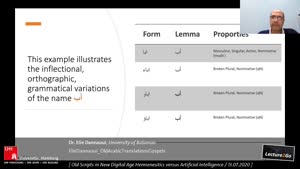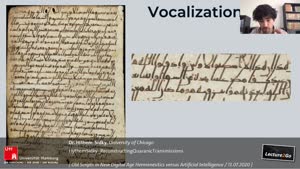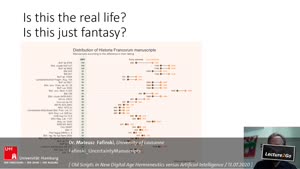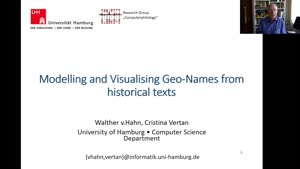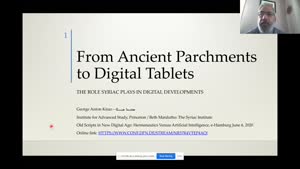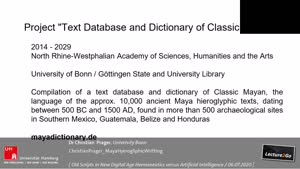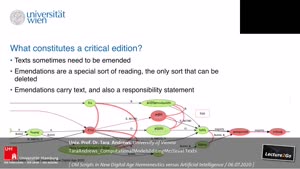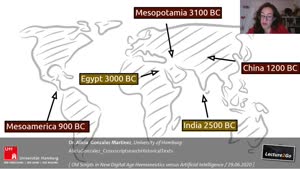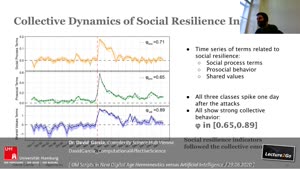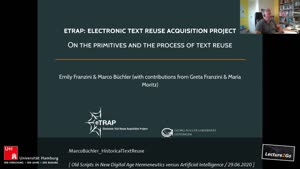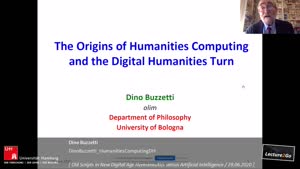DinoBuzzetti_HumanitiesComputingDH - Dino Buzzetti - University of Hamburg
- Lecture2Go
- Catalog
- F.6 - Mathematik, Informatik, Naturwissenschaften
- Informatik
- Old Scripts in New Digital Age Hermeneutics versus Artificial Intelligence
Catalog
DinoBuzzetti_HumanitiesComputingDH
Dino Buzzetti, University of Bologna, „The origins of 'Humanities Computing' and the 'Digital Humanities' turn“
At its beginnings Humanities Computing was characterised by a primary interest in methodological issues and their epistemological background. Subsequently, Humanities Computing practice has been prevailingly driven by technological developments and the main concern has shifted from content processing to the representation in digital form of documentary sources. The Digital Humanities turn has brought more to the fore artistic and literary practice, as the overall activity in the social sciences and humanities, in direct digital form, as opposed to a supposedly commonplace application of computational methods to scholarly research. Consequently, the present condition in the field of Digital Humanities comprises two diverse orientations, directed to specifically different goals, that can be concisely characterised respectively as ‘knowledge design’ and ‘data science’. A further epistemological reflection on a constructive relationship between these two diverse orientations becomes now all the more necessary.
---
Einführungstext:
The digitalization campaign during the last years made available a big number of manuscripts, printed books, inscriptions, to a broad public. Most of them remain inaccessible for non-specialists for several reasons: the script cannot be deciphered, the language disappeared or its historical variants differ too much from the modern one, the semantics of the words changed or the conceptual space is completely different from ours. Computational methods and especially artificial intelligence offer powerful mechanisms to bring these rich cultural heritage assets into new light, made them transparent and more accessible for non-specialists and allow also more interdisciplinary collaboration. On the other hand, processing these documents implies often the rethinking and adaptation of established paradigms in the computer science and the embedding of principles of the ground method in humanities „hermeneutics”.
In this public lecture series, we invite internationally renowned scholars working in the cutting- edge domain of digital culture heritage to present current approaches of using computational methods on old scripts, show benefits, discuss the change of paradigm in humanistic interpretation and address also limitation of machines. The talk will address a broad spectrum of scripts and languages among them Arabic, classical Ethiopic, Coptic, Latin, classical Greek, old German.
The series of lectures is supported by the Project HerCoRe (https://www.inf.uni-hamburg.de/inst/dmp/hercore/projects.html) financed by the Volkswagen Foundation and the ERC Project COHBUNI (https://www.cobhuni.uni-hamburg.de/project.html)
Organisers: Dr. Cristina Vertan, Prof. i.R. Dr. Walther v. Hahn (MIN, Dept. Informatik), Dr. Alicia Gonzalez Martinez (AAI, Facultät für Geisteswissenschaften)

